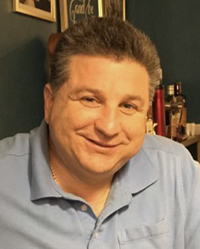Expert Stresses Importance of Dignity in Fighting Drug Abuse
By Michael Giuliano
In a society where drug use has skyrocketed, Dr. Debbie Weinstock of the Dignity Initiative believes that drug abuse prevention can never be taught “too early.” In a presentation on July 20 in Yorktown, Weinstock demonstrated how creating a stable parenting foundation could minimize the temptation for future drug abuse.
“How parents treat children when they’re young really determines the choices they’re going to make,” Weinstock said during her presentation. “Family is the real foundation.”
The Dignity Initiative is a consulting group designed to teach people the important role that dignity plays in everyday life, and how treating others with dignity leads to better communication, empathy, and understanding throughout the community.
Weinstock, who earned both her Masters and doctorate degrees in Clinical Psychology, founded the Dignity Initiative in 2015 as a response to the lack of addressing the deeper psychological issues behind abuse and addiction.
“I decided that I wanted to do something a little different,” Weinstock said. “It’s about thinking ‘what healthy motivation is behind this unhealthy behavior,’ and I didn’t see that happening in many therapy rooms.”
In her presentation, Weinstock highlighted how the six core psychological needs and 10 elements of dignity, if completely satisfied and fulfilled, provide the ideal foundation in the lives of children.
“We can either look at the risk factors themselves or we can look at the issues behind the risk factors,” Weinstock said. “Often it’s a lack of skills, a lack of self-confidence, and a lack of self-assuredness.”
By strengthening and supporting basic psychological requirements such as security, variety, growth, and contribution, Weinstock believes that the appeal of drugs will be significantly decreased.
On the subject of drug abuse and prevention, Weinstock said that she first became involved with the community efforts after attending a meeting held by the Yorktown Against Heroin Task Force.
“I listened to these heartbreaking stories of kids who had died of overdoses, or were struggling [with addiction],” Weinstock said. “Treatment for heroin abuse is not always successful, and it’s very tough to go through. So if I could figure out a way to prevent that from happening, even for a few people, that would be incredible.”
Weinstock has also taken a training session to administer Narcan, an opioid blocker that can be used as an emergency antidote for heroin overdoses. She also wants to address the issue that addiction is not merely a physiological phenomenon, but that it may rather be the result of deeper social issues within a person. In the results of Bruce K. Alexander’s “Rat Park” drug experiments from the 1970s, it was suggested that the cause of addiction was simply the result of a lack of social interaction and fulfillment. While Weinstock admits that this was just a single experiment that has since been contested, she would like to dismiss the idea that drugs like heroin are inherently addictive.
“For a long time, people thought it was the nature of the drug itself. You take heroin, you get addicted, and that’s the end,” Weinstock said. “The problem is that many people over the years have [been given] Morphine in the hospital, and then they just get out and they don’t crave it. The question is: How can that be if heroin is so addictive, and it’s just the nature of the drug itself?”
In the end, Weinstock hopes to use the principles and ideals put forth by the Dignity Initiative to help curb the heroin epidemic that has overcome the country, and Westchester County in particular, over the past few years.
“If you start out feeling worthwhile, if you start out with that sense of value, then you won’t need to be saved,” Weinstock said.
In addition to offering presentations on drug abuse prevention and education, Weinstock provides one-on-one and family counseling sessions, as well as workshops on conflict resolution in the workplace. For more information, visit www.DignityInitiativee.com, or contact Dr. Weinstock at (914) 245-9585.

Rick has more than 40 years’ experience covering local news in Westchester and Putnam counties, running the gamut from politics and crime to sports and human interest. He has been an editor at Examiner Media since 2012. Read more from Rick’s editor-author bio here. Read Rick’s work here: https://www.theexaminernews.com/author/pezzullo_rick-writer/
